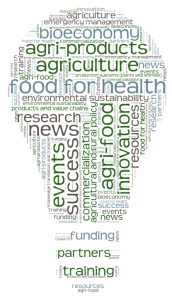Tuesday, 12 November 2013, from 09.00 to 18.00 in FAO Headquarters in Rome
3:00 a.m. to 12:00 EST (See agenda for details)
FAO, the UN Standing Committee on Nutrition (UNSCN), Bioversity International, and the governments of Malawi and Flanders are co-organizing a seminar to explore practical approaches and solutions to nutrition and sustainability. The seminar will bring together around 300 scientists, policy makers, experts, students and practitioners to develop responses to countries’ requests about “why?” and “how?” to link nutrition and sustainability, and to discuss the trade offs. Outcomes of this one-day seminar will also feed into the discussions of the ICN2 Preparatory Technical Meeting<http://www.fao.org/food/nutritional-policies-strategies/icn2/en> (13-15 November 2013).
For more details: http://www.unscn.org/en/nutrition_and_climate_change/nutrition_and_sustainability_seminar_12_november.php
Webinar To Explore Sustainability Vs. “Sustainababble” And The Road Ahead
Wednesday, November 13, 2013, 2:00 p.m. EST (11 a.m. PST)
The word “sustainable” is increasingly difficult to distinguish between “sustainababble,” with growsing false claims confusing our understanding of what sustainability truly entails. This webinar, based on the 2013 edition of the Worldwatch Institute’s flagship annual report, State of the World (subtitled: Is Sustainability Still Possible?), will help participants to better distinguish between sustainability and sustainababble, discuss the scientific foundations of sustainability, explore how to create a truly sustainable human society, and if that is no longer possible, how to prepare ourselves for the turbulent transition ahead.
Featuring commentary by: Erik Assadourian, Senior Fellow, Robert Engelman, President, Worldwatch Institute
Click here to register.
JOIN THE CONVERSATION
Tuesday, November 19, 2013 from 12-2 pm EST
Across Canada via webcast
USC Canada: On November 19th, Miguel Altieri (University of California, Berkeley) – a world leading authority on agroecology – will speak on ecological agriculture as a key solution to food insecurity, hunger, and climate change. He’ll be joined by panelists:
Jean-Martin Fortier, farmer and author of The Market Gardener,
Sarah Archibald, Campus Food Systems Project Coordinator, and
Henry Lickers, Environmental Science Officer, Mohawk Council of Akwesasne.
Bob Carty, former top CBC radio journalist, will moderate the webcast.
REGISTER
To register for the webcast or to organize a private or public screening, go to: usc-canada.org/feedingtheworld.
 Our products will highlight partners’ successes, funding opportunities, events and resources and information specific to:
Our products will highlight partners’ successes, funding opportunities, events and resources and information specific to: